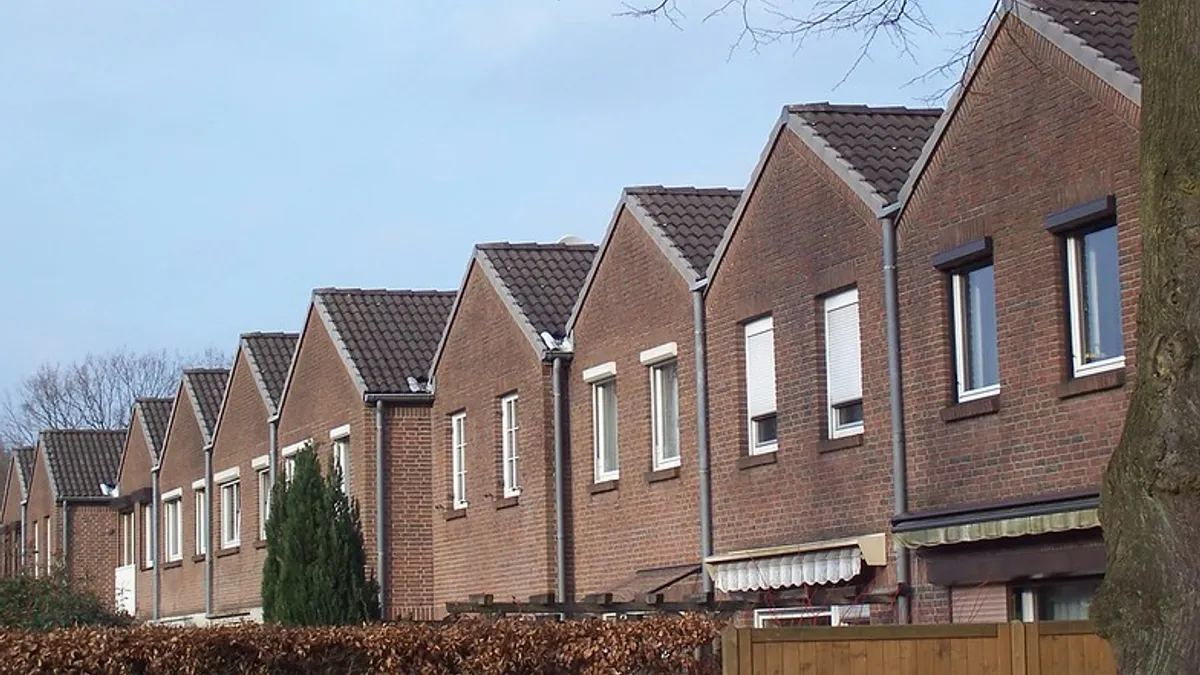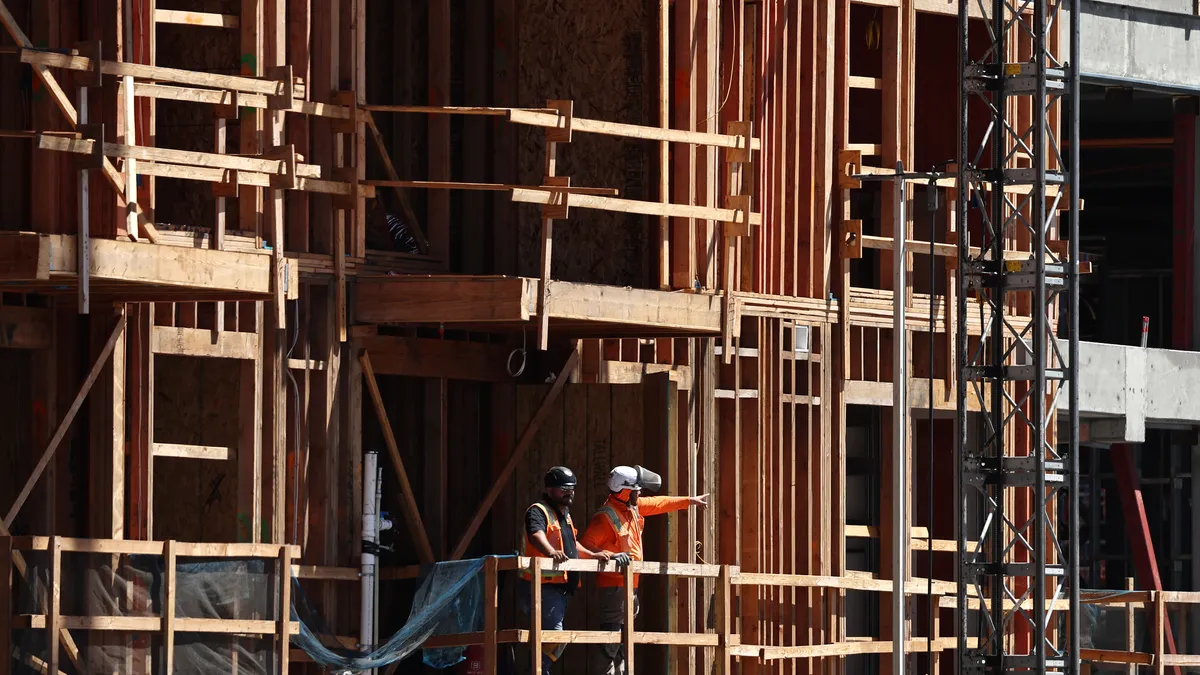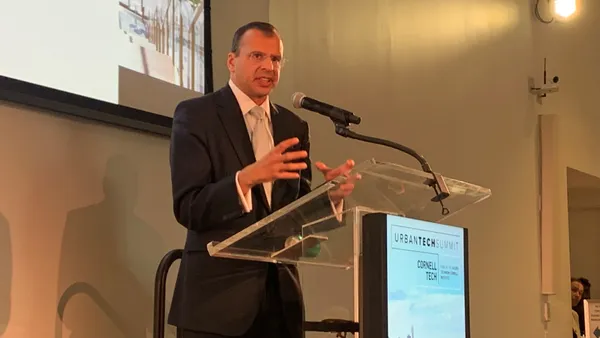Dive Brief:
- Smaller U.S. cities could see heightened interest in their residential and commercial real estate coming out of the coronavirus pandemic (COVID-19), according to a report from the Urban Land Institute (ULI) and PricewaterhouseCoopers (PwC). Raleigh/Durham, NC; Austin, TX; Nashville, TN; Dallas and Charlotte, NC are among the quickest-growing real estate markets, according to the report.
- More than 1,600 people including real estate investors, developers and property company officials responded to the report's survey, of which 94% said they believe companies will allow at least partial remote work moving forward and may shrink their office space to save costs. More than half of respondents said businesses will seek new ways to encourage collaboration in-person while upholding compliance with social distancing guidelines, helping to ensure offices will not become obsolete.
- Businesses and policymakers are also looking at ways to undo a legacy of inequity in the real estate sector, the report said. Seventy percent of survey respondents said the industry can address and help end systemic racism. But the report also warned the lack of affordable housing in the United States is exacerbated by the economic fallout and steep job losses caused by COVID-19.
Dive Insight:
The coronavirus has taken a major toll on some of the biggest cities in the United States, which have had to deal with enormous budget shortfalls, cratering transit ridership, thousands of people left unemployed and a struggling small business scene. While that damage has not been confined to the largest metro areas, ULI said smaller cities and more suburban areas have become more attractive, especially as the shift to remote work and tech jobs have expanded beyond traditional powerhouses like Silicon Valley.
And although cities including Orlando, FL and Las Vegas, which have relied on the tourism and hospitality sectors for the bulk of their revenues, have struggled during the pandemic, experts say they will return the quickest as people seek to regain normalcy. "Some of those markets that are flat on their backs today will be the quickest to rebound," Richard Kleinman, managing director of research and strategy at LaSalle Investment Management, said during a ULI-hosted webinar Wednesday.
Smaller cities may also benefit from more flexible working arrangements, Jeanette Rice, head of multifamily research at commercial real estate firm CBRE, said during the webinar. More office-based employees might be inclined to have a longer commute if they only have to go into the office two or three days a week, according to Rice, citing Richmond, VA as an attractive option for someone to live if they commute to Washington, DC.
We "won't have clarity for a while yet" on the future of work and where people live, Rice acknowledged. But the possibility of autonomous vehicles (AVs) ferrying people to and from their jobs could also make it more feasible, said Adam Ruggiero, head of client solutions for MetLife Investment Management. "Suddenly, that two-hour commute becomes even easier to bear because you're working during the commute or you're watching Netflix on the way," Ruggiero said.
However, while other speakers said a move toward total remote work is feasible, they argued it will be more nuanced given the economic impacts on nearby businesses frequented by office workers. Concerns about the vitality of downtowns have dogged a proposal in the San Francisco Bay Area to have large companies mandate remote work three days a week, with city leaders saying the impacts could be tremendous. And experts have said if cities are to successfully bounce back, they will need to reimagine their downtown hubs, especially when it comes to repurposing shuttered restaurant and retail space.
"By and large, that's one less lunch that gets purchased in the restaurant, that's one less parking spot that gets reserved," Kleinman agreed. "Whatever are those other things that go around offices, those I think are going to get hurt."
With the housing affordability crisis and debates about racial equity ongoing, ULI said the real estate sector is in a crucial position to help, as it can support job training and recruiting programs for people of underrepresented and underserved communities. The sector must do more to invest in underrepresented and low-income neighborhoods, especially as the budgetary issues that plague cities mean programs to make housing more affordable could be further affected without federal help, according to ULI.












